I am trying to manipulate a list (about 50 columns) where I basically want to select some columns (some 7 or 10). However, some of those columns have empty entries. I am guessing something like this is a minimal working example:
A B C D E#note these are 5 tab separated columns
this that semething something more the end
this.line is very incomplete #column E empty
but this is v.very complete
whereas this is not #column B empty
As you can see, the 3rd line is empty in the last position.
I want to find a way of efficiently replacing all empty fields of my interest by a string, say "NA".
Of course, I could do it in the following way, but it is not very elegant to do this for all the 10 columns that I have in my real data:
#!/usr/local/bin/perl
use strict;
use warnings;
open my $file,"<","$path\\file.txt"; #with correct path
my @selecteddata;my $blankE;my $blankB;
while (<$data>) {
chomp $_;
my @line= split "\t";
if (not defined $line[4]){
$blankE="NA";
} else {
$blankE=$line[4];
}
if (not defined $line[1]){
$blankB="NA";
} else {
$blankB=$line[1];
}
push @selecteddata,"$blankB[0]\t$line[1]\t$line[2]\t$line[3]$line[4]\n";
}
close $data;
Alternatively, I can pre-process the file and replace all undefined entries by "NA", but I would like to avoid this.
So the main question is this: is there a more elegant way to replace blank entries only in the columns that I am interested by some word?
Thank you!
